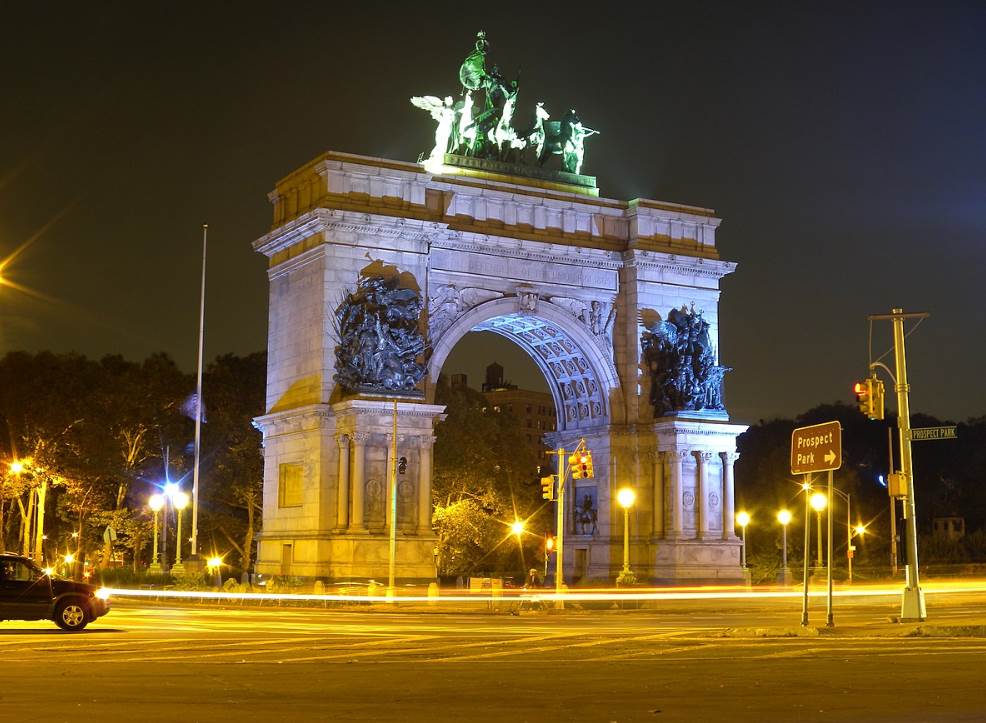Monuments that were used for propaganda in the Roman Empire have been constructed all around the world in modern times.
Yes, triumphal arches are some of the most stunning architectural features in cities all over the planet. New York City is home to several arches, and not only in Manhatten.
Let’s discover some of the most interesting facts about the Soldiers and Sailors Arch, a fascinating monument in New York with some remarkable stories to tell.
1. It’s the centerpiece of a monumental public square in Brooklyn
The entrance of a large public park called “Prospect Park” in Brooklyn, New York, is an amazing public square named “Grand Army Plaza.”
The square covers an area of 14.26 acres (5.77 hectares) and features magnificent concentric oval rings that were arranged as streets.
Yes, this is a great place to hang out in the heart of the urban jungle that Brooklyn is today.
The Soldiers and Sailors Arch is situated on the southern end of the plaza and the northern tip of Prospect Park.
This park is the second-largest park in Brooklyn after Marine Park. It’s huge as it covers an area of 526 acres (2.13 square kilometers).
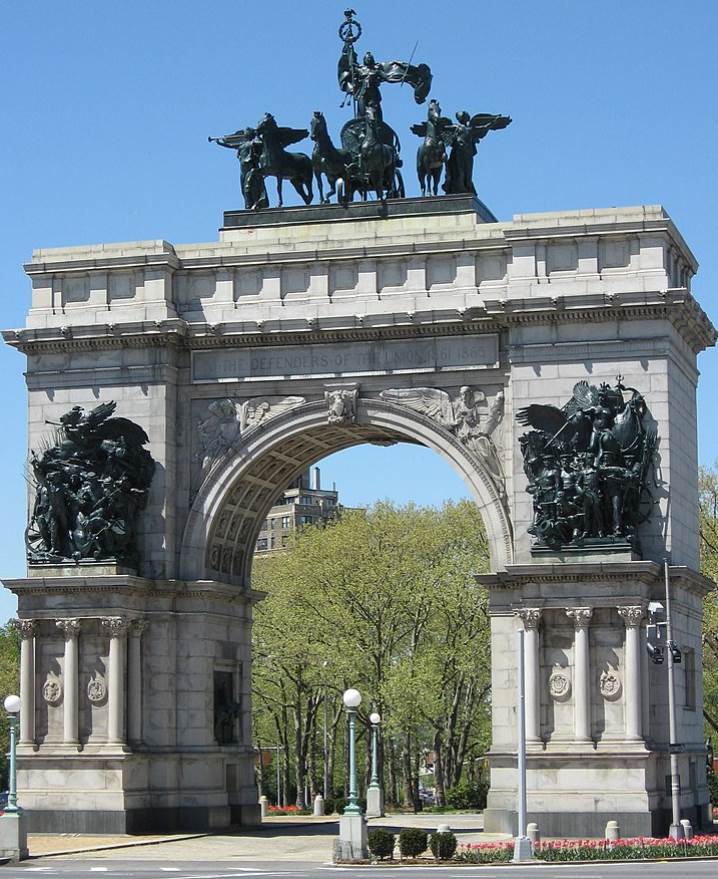
2. The arch was dedicated to the “Defenders of the Union”
The arch is officially known as the Soldiers and Sailors Memorial Arch and that’s because it’s a war memorial dedicated to the American Civil War.
More specifically, it commemorates the people who defended the Union during this event which took place between April 12, 1861, and May 9, 1865.
The cornerstone of the arch was laid in 1889 and the main speaker of this event was William Tecumseh Sherman (1820-1891). He was a general of the Union Army during the American Civil War.
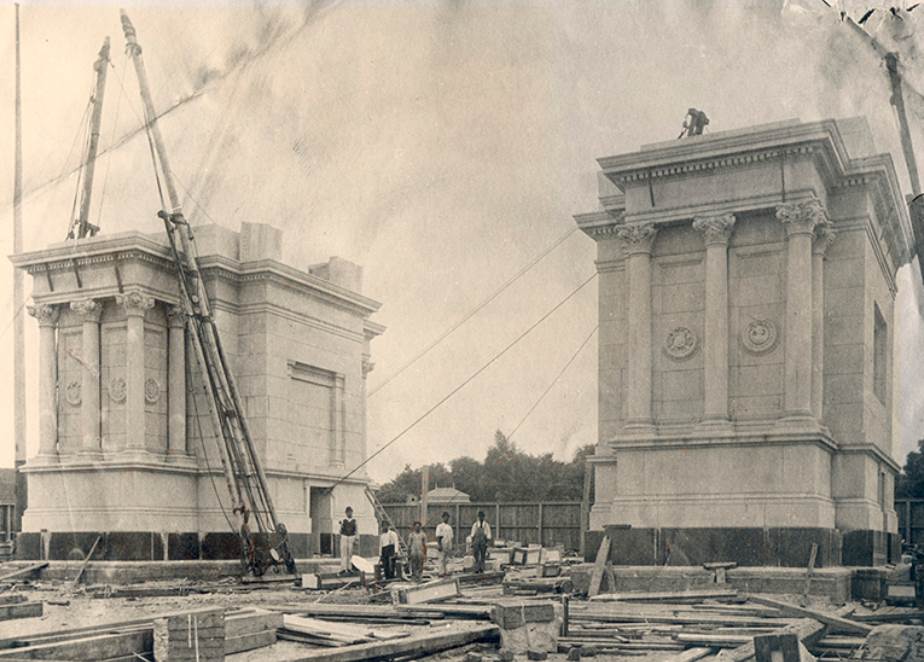
3. It was designed by a man who was involved in multiple NYC landmarks
A commission was established in the late-1880s with the sole purpose of managing the construction of this monumental project.
To find a suiting design, a competition was launched and 36 proposals were submitted. It was eventually the design of John Hemenway Duncan (1854-1929) that was chosen.
This was a remarkable choice because Duncan was still a relatively unknown architect at the time. Winning this prestigious commission was the prelude to several other projects in the city.
His most notable works are the Wolcott Hotel (1902-1904) and Grant’s Tomb (1897). The latter is the amazing mausoleum of Ulysses S. Grant (1822-1885) and his wife Julia, the 18th president of the United States.
Frederick Law Olmsted and Calvert Vaux were in charge of the construction and they got help from architect Stanford White (1853-1906), the man who designed Washington Square Arch in Manhatten.
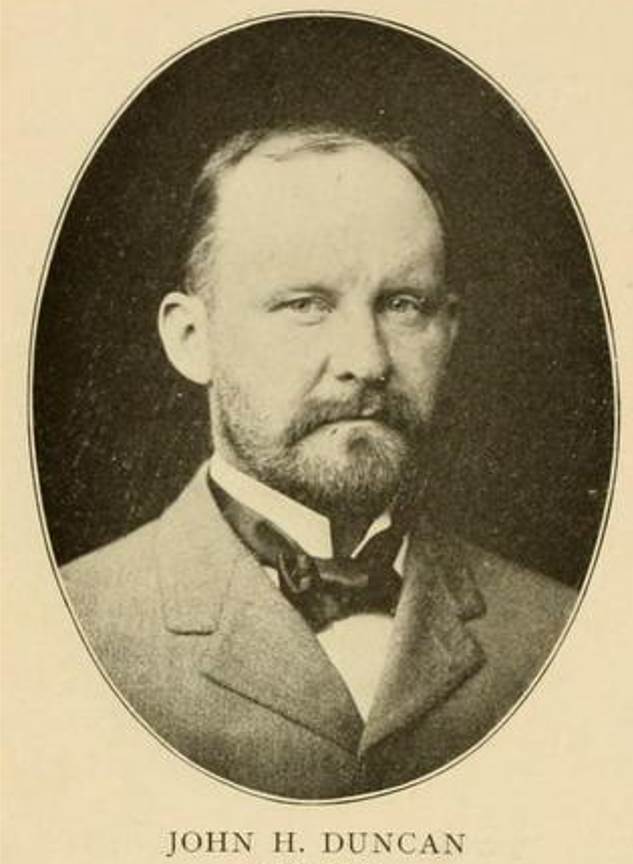
4. How big is the Soldiers’ and Sailors’ Arch in New York City?
The Soldiers and Sailors Arch is sometimes referred to as the “Arc de Triomphe of Brooklyn.” This is a reference to the astounding landmark in Paris and the most famous arch in France.
Whether or not Duncan based the design on the arch in Paris remains unknown. We do know that it’s not nearly as tall as its bigger brother in Paris, though.
Regardless of this notion, it’s still a pretty impressive monument with the following dimensions;
- Height: 135 feet (41.14 meters)
- Width: 135 feet (41.14 meters)
- Archway height: 50 feet (15.24 meters)
- Archway width: 30 feet (9.14 meters)
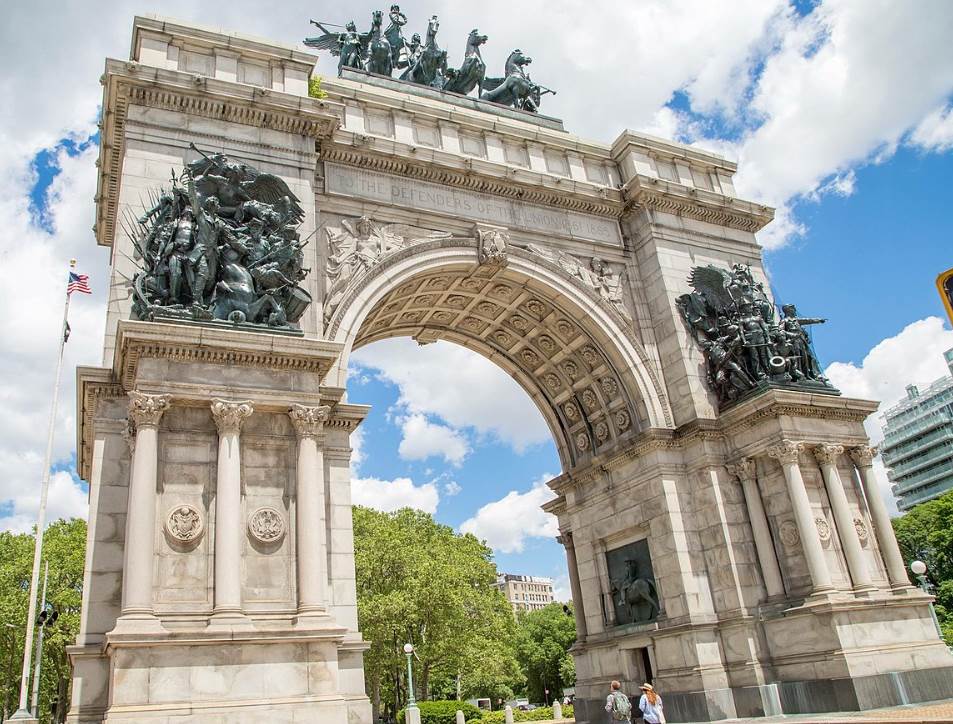
5. The arch didn’t look the way it does today upon completion
Many of the most famous arches in the world are decorated with beautiful sculptures and bas reliefs. These usually tell the story as to why the arch was erected.
One of the most remarkable facts about the Soldiers and Sailors Arch in Brooklyn is that it didn’t feature any of these types of decorations upon completion.
McKim, Mead, and White, the most renowned architectural firm in New York City at the end of the 19th century, recommended the commission to add sculptures to improve the arch’s appearance.
The sculptures and reliefs that decorate the arch were added in 1894 and 1895, over a decade after the arch was completed.
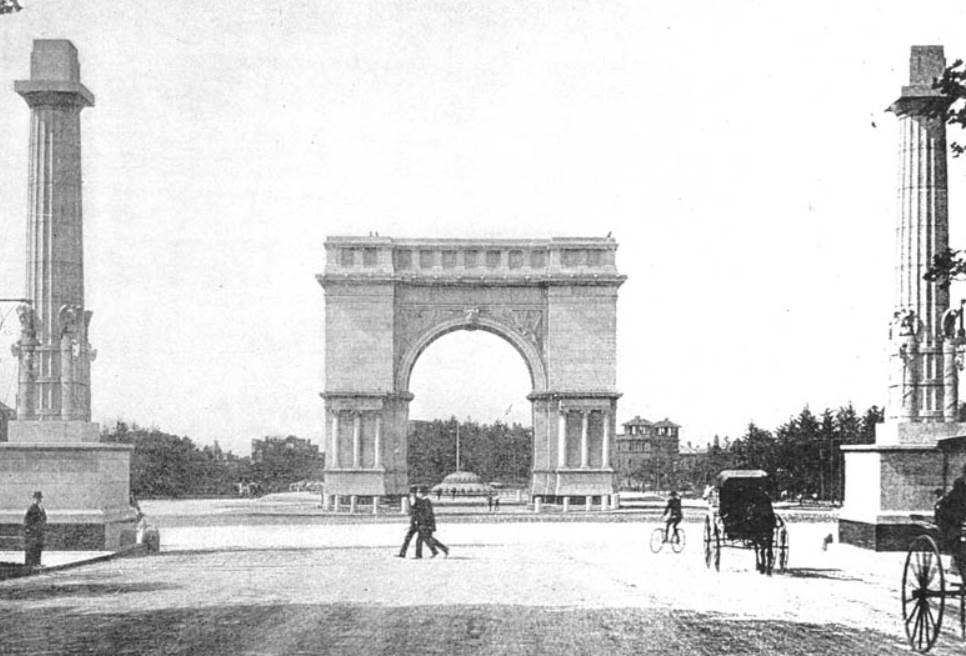
6. The interior of the monument features bas reliefs of two American presidents
The interior of the arch is decorated with two bas-reliefs that despite important American presidents. Both Abraham Lincoln and Ulysses S. Grant are depicted riding a horse.
These equestrian sculptures were produced by American sculptors William Rudolf O’Donovan (men) and Thomas Eakins (horses) and installed in 1895.
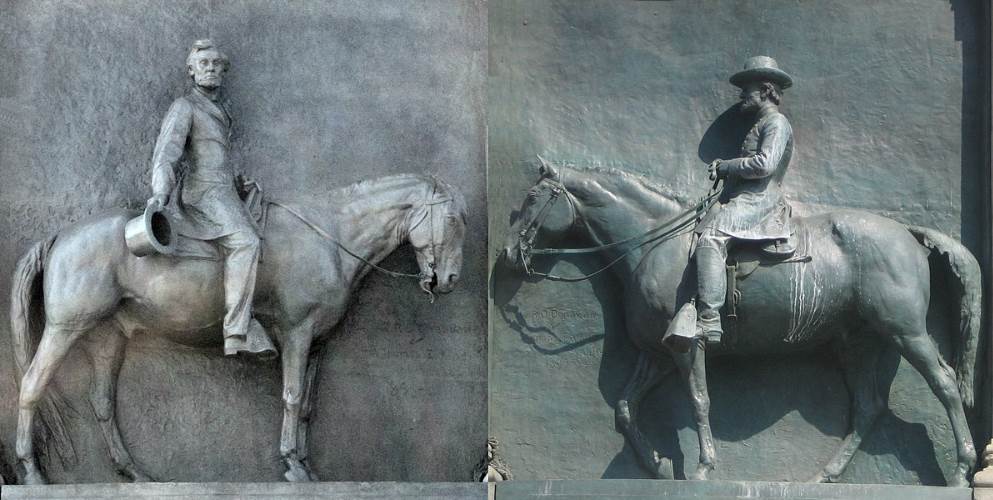
7. The sculpture on top is an allegory of the victory during the Civil War
American sculptor Frederick MacMonnies produced the three sculptural groups that decorate the exterior and top section of the arch.
The bronze sculptures right beside the archway are allegorical representations of the American Army and Navy.
The quadriga on top of the arch depicts the winged goddess of victory as she is holding a sword, colors, and a flagstaff.
This is an allegorical representation of the victorious Union Army and a representation of the fact that the arch was dedicated to “The Defenders of the Union, 1861–1865.”
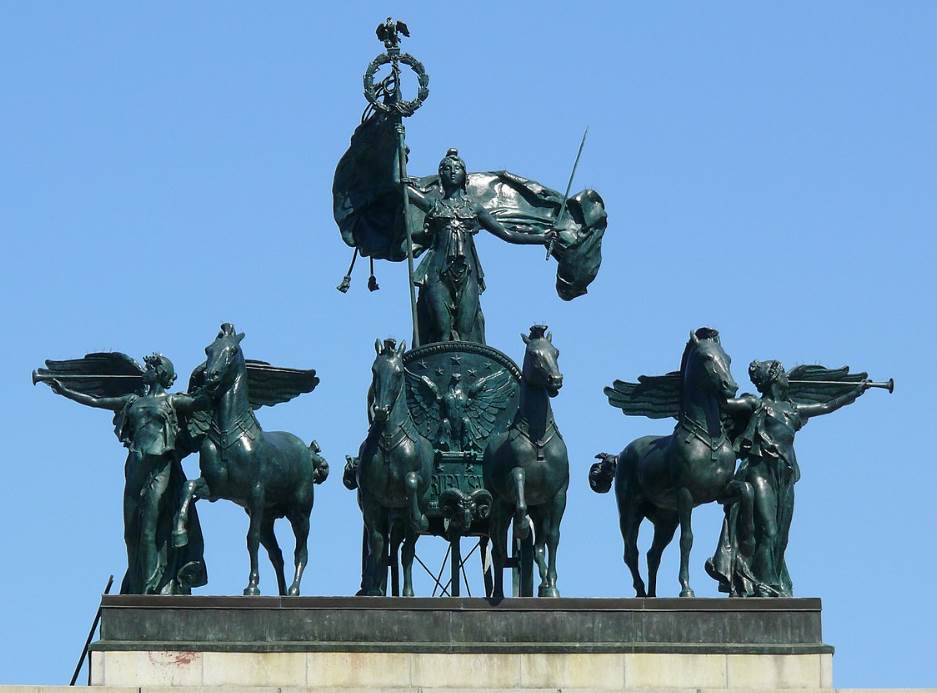
8. The arch’s observation deck is scheduled to reopen to the public
The eastern part of the arch features a stairway that allows visitors to travel to the top of the monument, right near the allegorical sculpture.
Unfortunately, the condition of the stairway and observation deck has deteriorated so much that it had to be closed in the early 21st century.
A renovation project was announced in the year 2018 and as soon as that’s completed, you will be able to travel to the top of this amazing landmark in Brooklyn once again.
Because of the historical importance of this monument, it was designated a New York City Landmark on October 16, 1973.
